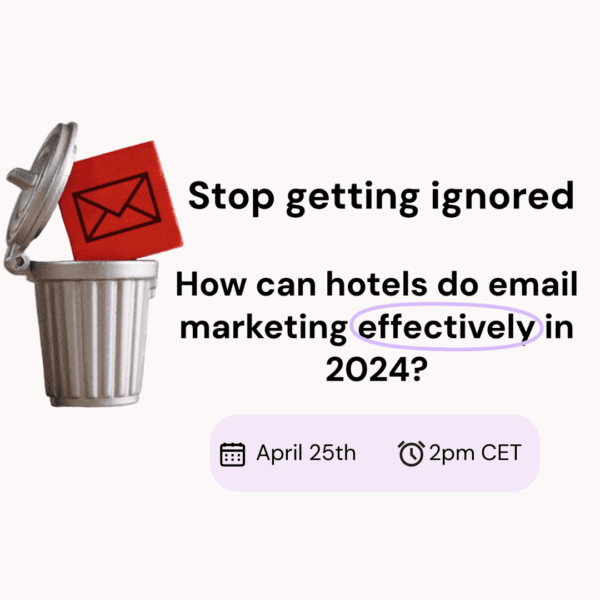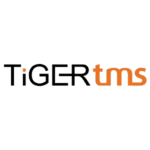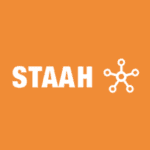 With the right email marketing campaign, a hotel can thrive in an industry characterised by cutthroat competition, according to Dr Daniel Leung and Ms Megan Tsou of the School of Hotel and Tourism Management (SHTM) at The Hong Kong Polytechnic University. Drawing on the experiences of real-life Chinese consumers, the authors provide pioneering empirical evidence of how hotel firms can optimise their email advertising to attract and retain customers. By appropriately framing their price promotions and personalising their emails to suit travellers’ unique cultural backgrounds, hotels can regain a foothold in their weakened industry. This will in turn support the swift recovery of hospitality and tourism in mainland China and beyond.
With the right email marketing campaign, a hotel can thrive in an industry characterised by cutthroat competition, according to Dr Daniel Leung and Ms Megan Tsou of the School of Hotel and Tourism Management (SHTM) at The Hong Kong Polytechnic University. Drawing on the experiences of real-life Chinese consumers, the authors provide pioneering empirical evidence of how hotel firms can optimise their email advertising to attract and retain customers. By appropriately framing their price promotions and personalising their emails to suit travellers’ unique cultural backgrounds, hotels can regain a foothold in their weakened industry. This will in turn support the swift recovery of hospitality and tourism in mainland China and beyond.
In the Internet age, more hoteliers are turning to digital marketing channels to attract new guests and maintain their connections with existing ones. Cultivating rich, personalised relationships through targeted online marketing can help to transform first-time visitors into loyal guests who return time and again – and perhaps even bring their friends! It is no secret that today’s most successful hotels invest heavily in building customer relationships online as well as in person.
Despite the recent rise of social media and mobile technologies, email remains one of the most dependable marketing routes for hospitality and tourism businesses. As “an agile and inexpensive tool for information dissemination”, the researchers explain, email plays an indispensable role in building customer–brand relations in the highly people-oriented hospitality sector. Indeed, they tell us, “companies in the hotel and food service industries are widely acknowledged as the most prolific users of email marketing”.
The best email marketing strategies trigger interested responses from readers, which may vary “from clicking on links to gathering more information to keeping the advertised information for future reference”, according to the researchers. These activities can create new sales opportunities and ultimately bring in revenue for hotel firms. But how should hotel managers and marketers design their emails to engage existing customers and entice new ones? Surprisingly, studies to date have shed little light on this important issue.
Seeking to fill this gap in the literature and supply much-needed insights for practitioners in the ever more competitive hotel industry, the team focused on two critical components of any good email marketing strategy. The first was monetary incentives, which are generally framed as either “amount off” (e.g., “Save 500 HKD!”) or “percentage off” (e.g., “10% off your next purchase!”) deals. Such price promotions are increasingly common in the hotel industry in the wake of the economic downturn and COVID-19 pandemic. The researchers wondered “which incentive framing format is more effective in terms of inducing readers’ intention to purchase and recommend the promoted products”.
“Another overlooked albeit pivotal cue that may influence readers’ responses to hotel-related email advertisements”, say the researchers, is language congruency. Whether an advertisement is presented in a customer’s native or non-native language may affect their response to the advertised product. Sometimes, say the researchers, “using consumers’ native language in marketing and service communications can reduce their psychological distance and increase their behavioural intention”.
However, the team also warns that “localizing the advertising language is not universally feasible in improving advertising efficacy”. For example, the use of a foreign language may “provide a distancing mechanism that moves people towards a more deliberate mode of thinking”. Given the rapid pace of globalisation and increasingly lucrative market of international travellers, it has never been more important for hoteliers to choose the right language – or languages – for their email marketing.
Armed with these insights, the researchers set out to discover “how these two communicationrelated cues – incentive framing format and language congruency – interactively influence readers’ post-reading responses to hotel-related email advertisements”. They hypothesised that amount-off promotions would be more attractive than percentage-off ones. However, they expected the degree of this impact to depend on “whether the language used in advertisements is congruent with the native language used by readers”.
To shed light on how real consumers perceive and respond to hotels’ email advertisements, the first step was to select an appropriate sample of prospective hotel guests. “Consumers from mainland China were recruited”, the researchers explain, “because many international hotel companies have personalised their marketing programmes for this group of travellers”. Furthermore, they add, “China is the country with the highest number of Internet users and checking emails is one of the most popular online activities of Chinese Internet users”.
Next, the researchers carefully developed a cover story. They asked the participants to imagine that they had received an email advertisement from a fictitious hotel in Hong Kong, the primary travel destination for outbound Chinese tourists. As dining offers are the main type of email advertising created by hotels, the advertisement described a price promotion in the hotel restaurant to celebrate an upcoming festival.
To explore the interactive effects of incentive framing and language congruency, the research team developed multiple versions of the email advertisement. Some described an amount-off promotion: “110 HKD off”. Others gave the same reduction in percentage form: “20 per cent off”. Some were in the participants’ native Chinese, and the rest were in English (which all of the participants spoke as a foreign language). After viewing these advertisements, the participants were asked how likely they would be to search for more information on the hotel, book the deal, and share the advertisement with friends and family members.
Meticulous analysis of the participants’ responses generated important insights. First, the amount off deal was more attractive to readers than the percentage-off deal. As expected, the participants who received the amount-off incentive were more likely to search for information on the hotel, share the advertisement with others, and make an online reservation. “Percentage-off discounts are naturally considered less favourable by customers”, the researchers explain, “because they require customers to process an additional arithmetic operation”.
However, the situation became more complex when the researchers considered the effect of language congruency. Only when presented in the readers’ native language was the amount-off incentive more effective in inducing readers to purchase the deal and recommend the hotel. Again, this was consistent with the researchers’ expectation. Using a foreign language in communication, they note, “is often accompanied by increased stress, because more cognitive load is required to decode the exchanged messages”.
These novel findings, obtained from real-life consumers, have two key implications for hotel managers and marketers seeking to optimise their email marketing campaigns. First, when promoting high-priced services such as restaurant dining, the researchers advise, hotels “should present the incentive in the form of amount off rather than percentage off”. Customers who believe that they are getting a better financial deal are more likely to make a reservation and recommend the hotel to others.
However, it is not enough to simply frame the price promotion correctly. “As customers appreciate and reward marketers’ sensitivity to their culture”, say the researchers, “hotels should abandon the conventional approach of sending a standardised message to all prospective recipients”. Instead, “they should personalise the language used in the email advertisement according to the readers’ native language”.
Filling gaps in the literature and offering vital managerial recommendations for an industry under pressure, this pioneering study stresses the need to tailor hotel marketing campaigns to guests’ cultural backgrounds and preferences. Demonstrating cultural sensitivity is not only a matter of courtesy, but also a tool for hoteliers to tap into the lucrative and rapidly expanding market of international travellers. The study’s recommendations for optimising email advertising will be enormously beneficial not only to hotels, but also to firms and managers in other service sectors. This may be more important than ever in the post-COVID-19 world, as digital channels are becoming an indispensable way for businesses to communicate with and reassure their customers.
About the authors
Daniel Leung, and Megan Tsou (2019). The Impact of Incentive Faming Format and Language Congruency on Readers’ Post-Reading Responses to Email Advertisements. International Journal of Contemporary Hospitality Management, Vol. 31, Issue 8, pp. 3037-3057.



















